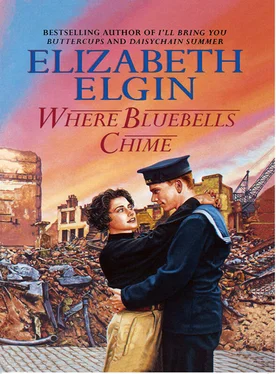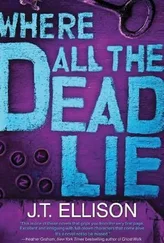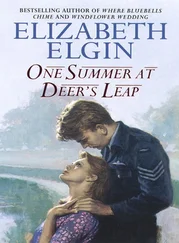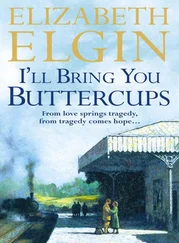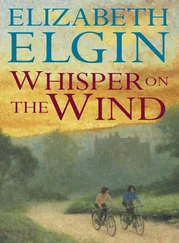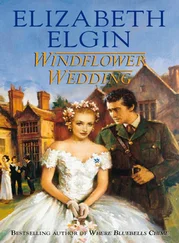1 ...8 9 10 12 13 14 ...38 ‘Are you the head gardener?’ she asked.
‘Aye.’ His eyes did not waver.
‘I think you’re expecting me, sir. I’m your land girl and I’m willing to learn …’ She let go her breath in a little nervous huff.
‘Aye.’ Catchpole stuffed his pipe into the pocket of his shirt. ‘Well, the first thing you learn in my garden is not to call me sir. My name is Jack Catchpole – Mister Catchpole to you. And what might your name be?’
‘Grace Mary Fielding, Mr Catchpole, but people call me Gracie. Gracie Fielding – Gracie Fields, see? Well, when you come from Rochdale, what else?’
‘What else indeed?’ Catchpole liked Gracie Fields and her happy, brash voice. Made him laugh, Our Gracie did. ‘So, young Gracie Fielding, what made you choose market gardening in general and Rowangarth in particular?’
‘Oh, I didn’t, Mr Catchpole – choose either, I mean. I just got sick of streets and mills and joined the Land Army so I could be in the country – and do my bit, of course. And it was the Land Army chose to send me here.’
‘Mills, eh? Cotton mills?’
‘Mm. All the women in our family worked in the mills, but Mam said she wanted better for me. “Gracie isn’t going in t’mill,” she said and she worked extra hours to send me to the Grammar School.’
‘So you got yourself a better job – kept away from the looms, then?’
‘A better job – yes,’ she grinned, ‘but at the mill, as a wages clerk. Would make Dickie Hatburn’s cat laugh, wouldn’t it?’
‘And who might Dickie Hatburn be?’
‘Dunno, but he must have had a cat, that’s for sure.’ She threw back her head and laughed and her teeth were white and even. Her eyes laughed, too.
‘Do you like cats, Gracie Fielding?’
‘Not as much as dogs.’
‘Then that’s the second thing you learn in my garden. Cats is not welcome. When you see one you chase it, don’t forget. Cats wait till you’ve made a nice soft tilth and sown your seeds careful, like, in nice straight rows, then they’ve the cheek to think you’ve done it specially for them. Soon as your back is turned, they’re scratching about among your little seeds and you know what they leave behind them?’
‘Oh I do, Mr Catchpole, and I’ll chase them.’
‘And dogs, too. Dogs’re not welcome in my garden either, unless accompanied by a responsible adult and secure on the end of a lead.’
‘I’m learning,’ Gracie smiled.
‘Then rule number three. At a quarter past ten exactly, I mash a pot of tea. Most days there’s a fire in the big potting shed if we can find wood, and it’s going to be one of your jobs to see that I get my tea on time.’
‘Ten fifteen exactly.’
Catchpole took out his pocket watch, then glanced in the direction of the potting shed.
‘Water’ll just about be on the boil. Tea’s in the pot. Reckon it might run to two. You’ll find an extra mug on the top shelf beside the bottle marked poison.’
Gracie entered the dark shed. It smelled of earth and bone meal and smoke from the crackling wood fire in the little iron grate. On the hob a kettle was just beginning to puff steam.
She searched the top shelf to find a blue enamelled mug, rinsed it in the rainwater butt outside the door, then shook it dry. She liked Mr Catchpole and the smell of his big shed; liked his garden with its high, red-brick walls with fruit trees growing up them and she liked the straight, weed-free paths and their little clipped hedges.
‘I’m glad I’m here,’ she smiled, handing him the bigger mug, settling herself beside him. ‘It’ll be better than working on a farm, shovelling manure.’
‘And what makes you think you won’t be shovelling manoor here?’ He jabbed the stem of his pipe in the general direction of a large, steaming heap in a distant corner of the garden. ‘That manoor came here this March and there it’ll stay till it’s good and black and rotted down and smells as sweet as a nut. And then, I shouldn’t be at all surprised, you’ll shovel it into a barrow and you’ll spread it down the potato rows and anywhere else I think fit for it to go. It’ll be the land girl’s job.’
‘Rule number four,’ she said gravely. ‘Manure.’
‘That’s it. And then, when we’ve used up that heap – next spring, that’ll be – us plants marrows there. Alus. Marrows is greedy feeders and they like growing where a manoor heap has wintered. Ground full of goodness, see. There’s a great call, these days, for marrows for stuffing.’
‘Stuffing,’ Gracie echoed, never having eaten a stuffed marrow and making a mental note never to eat one in future.
Catchpole supped appreciatively. The lass could mash tea and she had a happy face and could take a bit of teasing.
He glanced at her outfit, taking in the khaki knee-stockings, the shirt and green tie; the short, smart jacket and the hat, tipped to the back of her bright yellow curls.
‘Hope you don’t intend coming to work all dressed up like that,’ he remarked, eager to find just one fault.
‘Bless you, luv, no! I’m wearing my walking-out togs just to make an impression. Tomorrow, I’ll be wearing my dungarees and a cool shirt – and my good thick boots!’
Catchpole nodded, mollified, drained his mug then placed it on the ground at his feet.
‘You got a young man, then?’
‘One or two, Mr Catchpole, but none of them serious. Well, it’s best not when there’s a war on. Don’t think I’d like having someone I cared about very much away at the war.’
‘Ar.’ The lass had sense. ‘Still, can’t sit here all morning nattering. Work to be done. Us’ve got to dig for victory, or so the Government tells us.’
Gaudy posters everywhere urged it. ‘Dig for Victory!’ they exhorted. Britain needed food, so lawns must be dug up and cabbages and potatoes planted instead. Those without gardens were offered allotments; flowerbeds in parks were planted with peas and beans and lettuces. Any grassy stretch came under the plough and this year, where children once played and dogs had been walked, wheat and oats and barley were already turning from green to gold, soon to be harvested.
Dig for victory! Every spadeful of earth turned over, every potato picked, was a second in time off the duration of the war, and Britain dug furiously.
‘Then can’t I stay, Mr Catchpole – start work right away?’
‘You could, if you wasn’t all togged up like that.’
‘Then why don’t I go back to the hostel and change into my dungarees? And I can pick up my sandwiches whilst I’m about it. And Mr Catchpole – why is our hostel called a bothy?’
Questions, questions! ‘A bothy,’ he sighed, ‘is a place where apprentice lads lived. Young gardeners, stable lads and the like. Every big house has a bothy, only once, in the old days, they were filled. Mrs Purvis looked after them all.’
‘Mrs Purvis who’s our cook?’
‘That same lady. When the garden apprentices were taken into the militia, she had nothing to do. Lucky for her you land girls came along.’
‘She’s nice. She’s been asking us, now the apples are ripening, to try to get her some windfalls, then she’ll make us an apple pie for Sunday dinner. She’s a good cook.’
‘Well, you’m welcome to any windfalls you can gather here. There’s a few about, over by the far wall. Now off with you, lass! I’ll be over yonder when you get back, hoeing the sprouts. You know what sprouts are?’
‘Course I do – but I’ve never seen them growing.’
‘Well, from now on and for the duration, Gracie Fielding, you’m going to learn how to grow ’em – aye, and peas and beans and potatoes and more besides.’
‘Suits me, Mr Catchpole.’
He watched her go. Happen he just might make something of the lass from Rochdale. She had a nice smile and a ready laugh and he’d especially looked at her fingernails, which were short cut and unpainted.
Читать дальше
